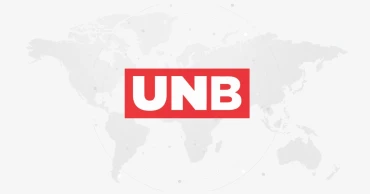David R. Malpass
Stay with us in implementing future physical & social mega projects: PM Hasina to WB
Prime Minister Sheikh Hasina on Monday urged the World Bank and other development partners to find out viable alternatives to help economies like Bangladesh cope better with the stress, caused by the pandemic, armed conflicts and climate emergency.
“The ongoing global multiple crises, caused by the pandemic, armed conflicts and climate emergency, have put most developing economies under serious stress. Some of our development partners have chosen to increase their lending costs and interest rates, which detract from their core mandate,” she said
She made the suggestion with other fours while addressing the Plenary Session of the 50 Years Partnership between Bangladesh and the World Bank at the Preston Auditorium of World Bank Headquarters with its president David R. Malpass in the chair.
In the second suggestion, Hasina said that Bangladesh is preparing for smooth and sustainable graduation from the UN LDC status in 2026. In this regard, she requested the World Bank to support Bangladesh’s human capital and institutional capacity development programmes for a smooth transition.
“The critical IDA window needs to be preserved and continued,” she said.
In the rhird suggestion, she mentioned that Bangladesh has aligned UN SDGs with its national aspiration to become an upper middle-income country by 2031.
“There is an urgent expectation that the World Bank and other development partners deliver increased, concessional and innovative financing for SDG implementation,” she said.
The prime minister in her fourth suggestion said Bangladesh hopes that the World Bank’s enhanced engagement in climate action would help address the wide gaps in financing under the Paris Agreement.
“We would stress the importance of equal distribution of financing between climate mitigation and adaptation,” she added.
In her final point, she said Bangladesh will continue to invest in infrastructure and logistics for realising its vision to become a high-income economy by 2041.
“I would expect the World Bank to engage in both our physical and social mega-projects in the coming years,” she said.
Hasina said that Bangladesh will continue to move forward undeterred.
“My presence here signals that we maintain our trust in the World Bank.
Our success in the next two decades would depend on our collective ability and efforts to overcome the emerging challenges in a just and sustainable manner,” she said.
She also put emphasis on remaining united towards making millions of people still lagging behind live a happy life in Bangabandhu Sheikh Mujib’s ‘Sonar Bangla’.
In 2009, she said that after assuming the office her government pledged to build a ‘Digital Bangladesh’ by 2021.
“In the last one and a half decade, Bangladesh has gone through significant change, thanks to political stability and sound macro-economic fundamentals.”
She mentioned that In 2015, the World Bank classified Bangladesh as a lower-middle income country. In 2021, the UN declared it eligible for graduation from the LDC status for the second time.
“We successfully managed the COVID-19 pandemic through an economic stimulus package worth USD 26.9 billion, and free-of-cost mass vaccination.”
The PM said that the completion of the Padma Multi-Purpose Bridge with country’s own resources and its inauguration last year is perhaps the best example of Bangladesh’s resilience and achievement.
She said that Bangladesh has today emerged as the world’s 35th largest economy, with a nominal GDP of USD 460 billion while its economy has been growing at an average rate of 6 percent in the last one decade. It reached up to 8.15 percent just before the pandemic. This has led to notable increase in per capita income to the tune of USD 2,824 in 2022.
She also mentioned that the overall poverty rate has reduced to 18.7 percent in 2022 from 41.5 percent in 2006.
Read more: World Bank approves $1.25bn financing in 3 projects for Bangladesh
“During this time, we have increased our budget allocation for social protection by 40 times, constituting 2.5 percent of our GDP.”
Just last year, she said, our government announced the decision to launch a Universal Pension Scheme.
She mentioned that under her flagship Ashrayan project, the government has provided free-of-cost homes to nearly five million people along with income-generating skills and support.
She said, 99.7 percent of households have come under electricity coverage, while the power generation capacity has increased eight-times to over 25,000 MW between 2006 and 2022.
2 years ago

